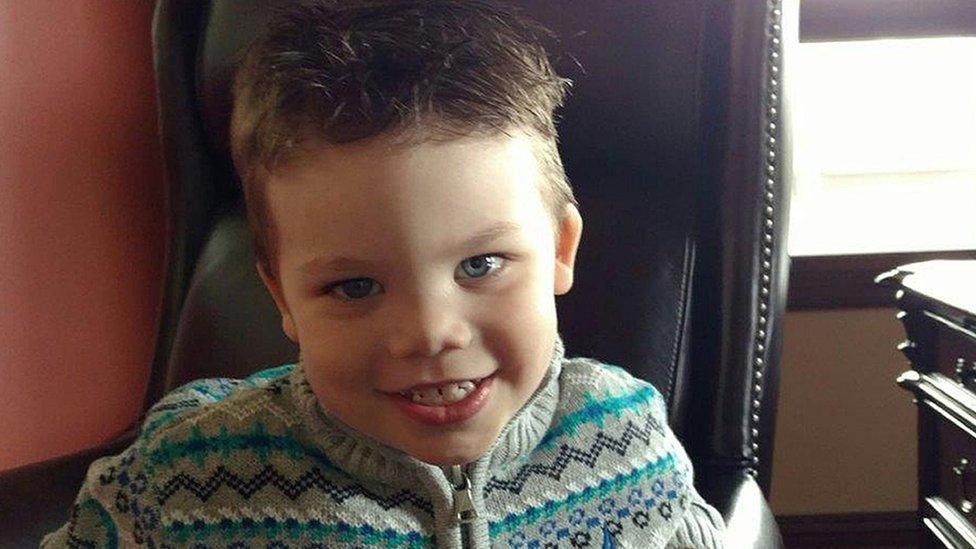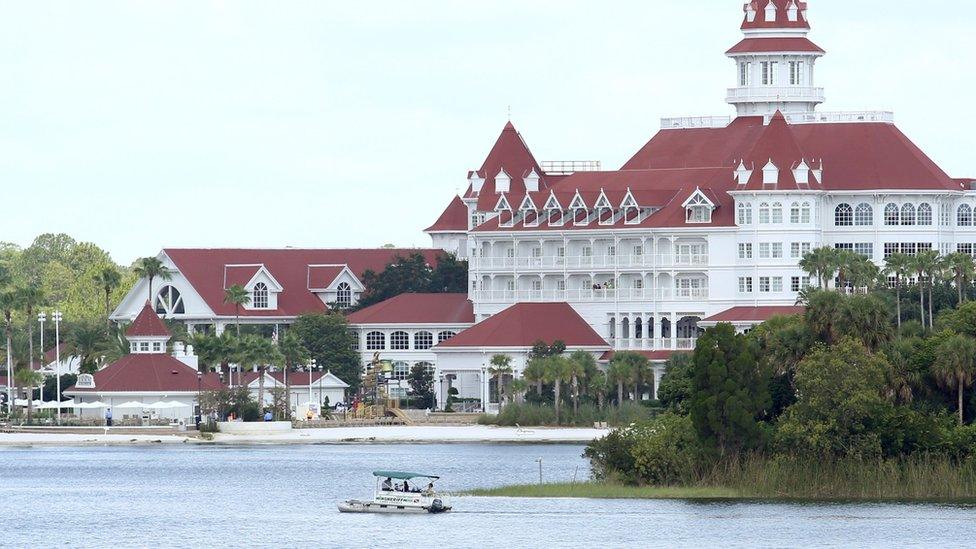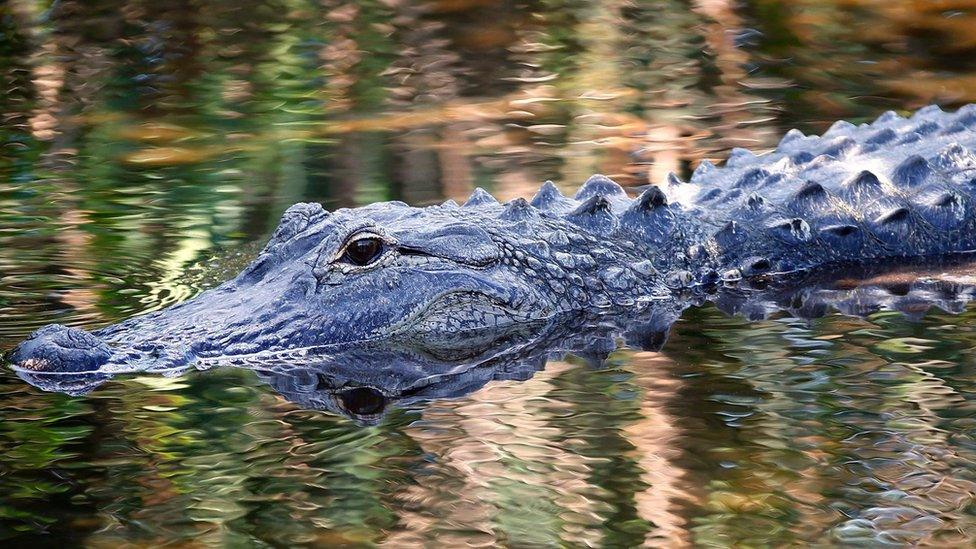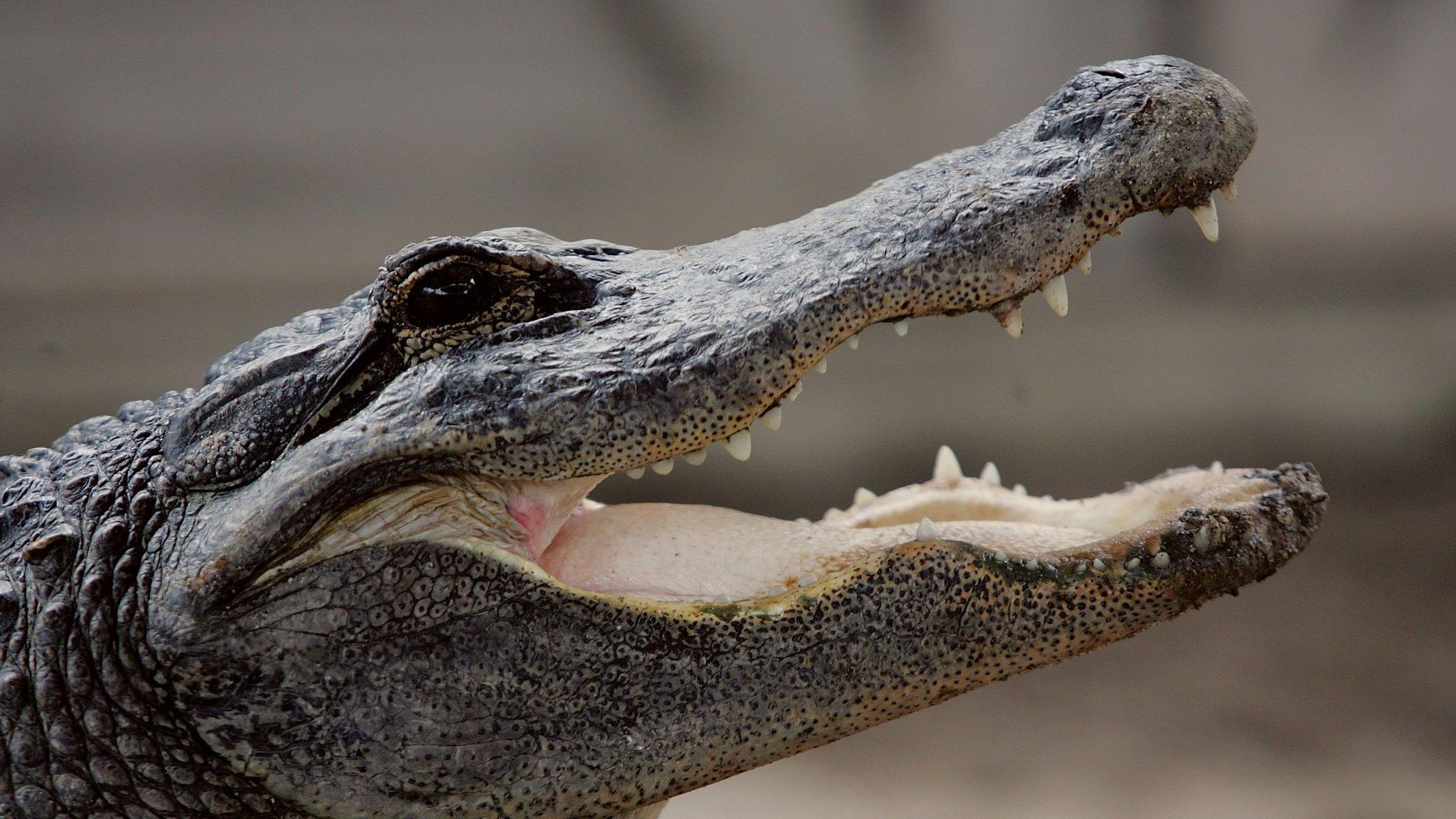Orlando alligator: Who is liable for toddler's death?
- Published

Lane Graves was wading in shallow water when he was taken by the alligator
On Wednesday, police in Orlando, Florida, recovered the body of a toddler who was dragged underwater by an alligator while staying at Disney's Grand Floridian Resort.
Though alligators are common in the state, the incident raises questions about whether Disney could have prevented the boy's death.
Two-year-old Lane Graves was wading in shallow water on the shore of the Seven Seas Lagoon when he was seized.
"No swimming" signs were displayed, but they did not warn specifically about the presence of alligators in the water, a situation that a Disney spokeswoman said was being reviewed.
"All of our beaches are currently closed, and we are conducting a swift and thorough review of all of our processes and protocols," Jacquee Wahler said in a statement on Thursday.
"This includes the number, placement and wording of our signage and warnings."
Lane and his family, who are from Elkhorn, Nebraska, were relaxing near the lagoon's shore on Tuesday night when he was taken by an alligator believed to have been between 1.2-2m (4-7ft) long.
Police searching for a young boy who was seized by an alligator have recovered a body
After a 16-hour search, Lane's body was found "intact" a few metres from shore and 1.8m (6ft) underwater, Orange County Sheriff Jerry Demings said.
The Orange County Medical Examiner's Office subsequently said the boy had died from drowning and traumatic injuries.
"We are devastated and heartbroken by this tragic accident and are doing what we can to help the family during this difficult time," said Walt Disney World president George Kalogridis.
Police have said an investigation is under way, and that it is not criminal in nature.
The death is the first of its kind at Disney World in its 45 years of operation, according to Sheriff Demings. But is the company legally liable?
'Anomaly'
Disney's liability hinges on whether it was negligent in warning guests about the potential dangers of alligators and what the company knew about the risk of harm, according to Florida state law.
Though state agencies post alligator warning signs near bodies of water, the attack occurred at a lagoon Disney said was marked only with "no swimming" signs, which did not specify the animal's threat.
Disney also works with the Florida Fish and Wildlife Conservation Commission (FWC) to remove "nuisance alligators", or alligators that are considered dangerous to people, from its waters.
But officials could not identify the last alligator sighting on Disney property or say how many had been removed in recent weeks, Nick Wiley, the FWC executive director, told the Orlando Sentinel.
Authorities removed and euthanised five alligators from the water after Lane Graves was taken.

The toddler was snatched at the shore of a man-made lagoon near an upscale resort
Disney's liability also depends on the status of both the family and the alligator.
According to Florida's premises liability law, external, a property owner is responsible for keeping property in a safe condition and for warning its "invitee, external", or someone welcomed onto the property, of concealed dangers that are known to owners.
The owner is also responsible if a child who has trespassed is harmed by an "attractive nuisance" on the property. An "attractive nuisance, external" is defined as an artificial item, such as a swimming pool or hot tub, that could be considered enticing to a child. The law, however, does not extend to wildlife.
Property owners are also not responsible for "invitee" encounters with wild animals, according to state law, external. The company would be responsible only if the alligators were kept as pets or under Disney's control.
Despite these protections, the company could be held accountable if found to be outright negligent.
John Mesirow, a personal injury lawyer in Washington, told the BBC that the case against Disney would be tough legally because of the infrequency of alligator attacks.
However, Disney would almost certainly settle with the family in a civil case to avoid a public relations disaster, Mr Mesirow said.

Wildlife experts estimate there are about 1.3 million alligators in Florida
"They will definitely settle, because a two-year-old died on their property and they cater to children," he explained.
"As far as a civil case goes, on the law, it's not that strong."
Disney's role will depend on what the resort knew and did about the threat of alligators and whether the "no swimming" signage was considered a reasonable enough warning for its guests.
Joseph Page, a law professor at Georgetown University, told the BBC that unless Disney was found guilty of "egregious misbehaviour", it is unlikely to be found negligent.
"After all, it is Florida," he said. "Everyone knows there are alligators near the water."
Still, alligator deaths in Florida are rare.
Before Lane Graves' death, 23 people had been killed by alligators in the state since 1973, according to FWC statistics, external.
Animal expert Jeff Corwin told the BBC that the attack was an "anomaly" and not much could have been done to prevent it.
Additional reporting by Ashley Gold
- Published15 June 2016

- Published15 June 2016
